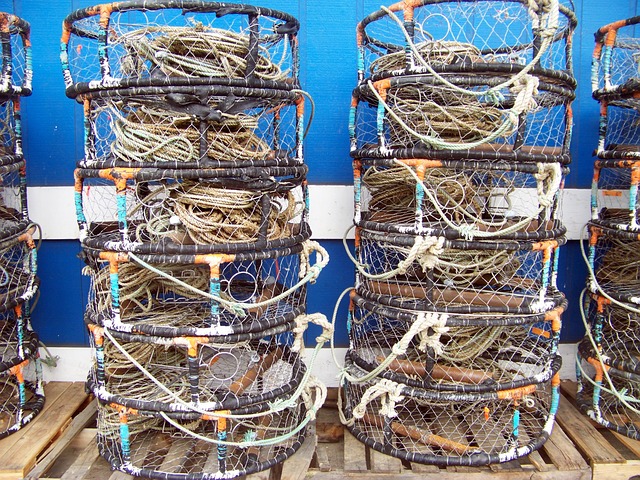In Oregon, the Department of Human Services (DHS) plays a vital role in child welfare cases, guided by Oregon family law, prioritizing stable environments and the best interests of minors. The system navigates complex legal frameworks while respecting parental rights, balancing child protection with familial bonds. Families face challenges, including overwhelming jargon and procedures, necessitating strategic defenses and specialized legal counsel to challenge DHS allegations. Post-case support services are crucial for long-term success, empowering families and rebuilding lives to prevent future interventions. Oregon family law is instrumental in these processes.
In Oregon, the Department of Human Services (DHS) child welfare cases significantly impact families. This article explores the legal landscape surrounding these cases, with a focus on Oregon family law. We delve into the role of family law in safeguarding parental rights, common challenges faced by affected families, strategic defense options available to parents, and the importance of post-case support for family stability. Understanding these aspects is crucial for both families navigating DHS involvement and legal professionals assisting them.
- Understanding DHS Child Welfare Cases in Oregon: A Legal Perspective
- The Role of Family Law in Protecting Parental Rights
- Common Challenges Faced by Families in DHS Involvement
- Strategic Defense Options for Parents in Child Welfare Proceedings
- Post-Case Support and Reintegration: Ensuring Family Stability
Understanding DHS Child Welfare Cases in Oregon: A Legal Perspective

In Oregon, the Department of Human Services (DHS) plays a pivotal role in child welfare cases, ensuring the safety and well-being of minors. These cases are governed by Oregon family law, which provides a framework for interventions when children are at risk or within the custody of DHS. Understanding the legal landscape is essential for both legal professionals and families involved.
Oregon’s child welfare system operates under the belief that children thrive in safe, stable, and nurturing environments. When a report of abuse or neglect is received, DHS has a duty to investigate and take appropriate actions. The agency may offer services to prevent removal, facilitate family reunification, or, as a last resort, place a child in alternative care. Legal processes ensure due process rights for families while prioritizing the best interests of the child throughout these proceedings.
The Role of Family Law in Protecting Parental Rights

In the intricate landscape of child welfare cases within the Department of Homeland Security (DHS), Oregon family law plays a pivotal role in defending parental rights and ensuring fairness throughout the legal process. The primary objective is to balance the best interests of the child with the preservation of familial bonds, a delicate task that demands meticulous navigation through complex legal frameworks.
Oregon’s family law courts are equipped to handle DHS interventions, employing various tools and statutes designed to safeguard parents’ constitutional rights. These laws provide guidelines for due process, ensuring parents are well-informed about their rights and have adequate representation during proceedings. By upholding parental rights, Oregon family law contributes significantly to the overall integrity of the child welfare system, promoting the resolution of disputes in a manner that respects family structures while prioritizing the welfare of minors.
Common Challenges Faced by Families in DHS Involvement

Families involved in Department of Human Services (DHS) child welfare cases often face a multitude of challenges, each presenting unique complexities under Oregon family law. One significant hurdle is communication and understanding of the legal process. The jargon and procedures can be overwhelming, leading to a sense of helplessness among parents. This lack of clarity may hinder their ability to actively participate in decisions affecting their children’s well-being.
Another common struggle is the emotional toll these cases take. The stress and anxiety surrounding potential separation or loss of custody can severely impact family dynamics. Oregon family law, while aiming to protect the best interests of children, must also consider the profound effects on parents and siblings, ensuring a balanced approach that supports both the child’s needs and the rights of the family as a whole.
Strategic Defense Options for Parents in Child Welfare Proceedings

In Oregon family law, parents facing DHS child welfare cases require robust strategic defense options. One key approach involves gathering and presenting compelling evidence that challenges the agency’s allegations. This includes documentation of parental efforts to address any identified concerns, such as completing parenting classes or participating in counseling sessions. Additionally, obtaining character references from trusted individuals within the community can help alleviate doubts about a parent’s ability and willingness to care for their child.
Another effective strategy is to engage the assistance of experienced legal counsel who specialize in Oregon family law. These attorneys can navigate the complex procedures and regulations surrounding child welfare cases, ensuring that parents’ rights are protected at every step. They may also advocate for alternative placements or arrangements that prioritize family preservation while addressing the child’s safety and well-being.
Post-Case Support and Reintegration: Ensuring Family Stability

After a child welfare case involving the Department of Homeland Security (DHS) is resolved, providing ongoing support and assistance to families is crucial for ensuring long-term stability and well-being. Post-case support services play a vital role in helping families reintegrate and rebuild their lives. This process involves addressing any outstanding legal matters related to parental rights and custody, offering counseling and therapy to heal emotional wounds, and connecting families with community resources to facilitate their transition back into their homes and communities.
In Oregon family law, post-case support is often tailored to meet the unique needs of each family. This may include home visits by case workers or therapists to monitor progress, access to legal aid for any necessary paperwork or appeals, and referrals to local support groups or community organizations. The goal is to empower families to overcome challenges, foster a safe and nurturing environment, and strengthen the parent-child bond, ultimately preventing future interventions and ensuring a brighter future for all involved.
